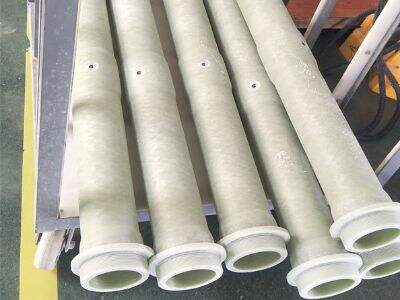In the world of creation, fiberglass and metal are used to shape equipment, such as tubes. There are several reasons why fiberglass tubes are growing in popularity over metal tubes. Let us delve into the advantages of fiberglass tubes and rods in chemical processing.
Rust Never Sleeps:
Fiberglass tubes have one advantage over metal tubes: they don't rust. In chemical processing, tubes frequently come into contact with substances that can corrode and destroy metal over time. Fiberglass tube have a very strong resistance to rust, making them last longer and be a better option to maintain equipment.
Lightweight and Comfortable:
Light fiberglass tube than a metal tube, easier to transport and install. This saves time and effort when installing them as it would mean you won’t need heavy machines to move them. Fiberglass pipes are also easier to transport because they are lightweight which comes in handy when you have to move or transport pipes to longer distance.
Less Money to Repair:
Fiberglass tubes are so strong and don’t rust, they require less repair than metal tubes. This can save companies thousands of dollars on repairs over the years. Less wear and tear on equipment putting them in or moving them because they're lighter.
Holds Temperature Consistently:
Fiberglass tubes have the advantage of keeping the temperature consistent inside. Fiberglass does not transfer heat well, which helps to keep the internal temperature of the tube consistent. That's critical in chemical processing where slight variances in temperature can change the outcome. Fiberglass tubes can improve and reinforce their processes.
Safe for Electricity:
Fiberglass tubes are safe to be used around electricity as they do not conduct electricity. They can be used in places where metal tubes would cause electrical shocks or fires. This is crucial for chemical processing, where electricity is commonly utilized. Fiberglass tubes can be used to ensure that workers and equipment are as safe and sound as possible.
 EN
EN





















